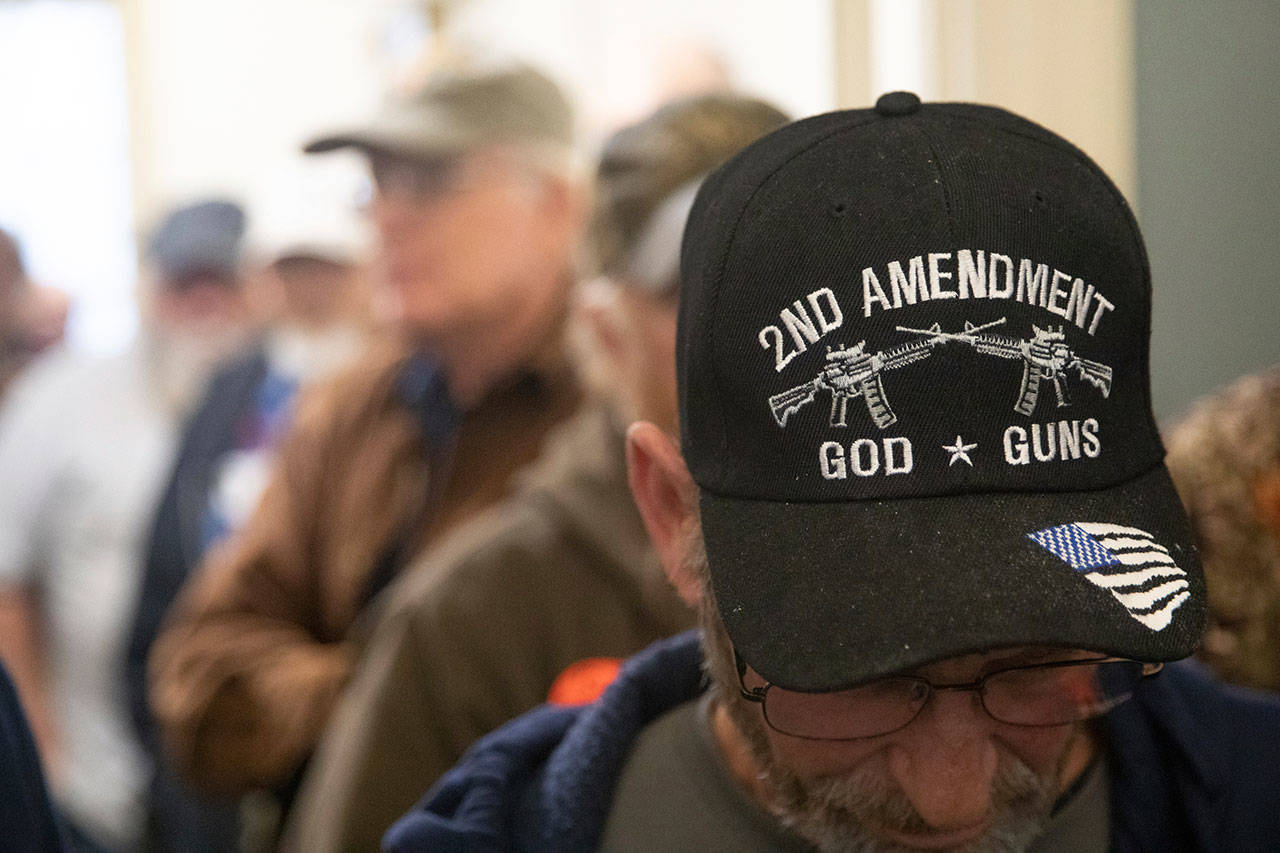By Mary B. McCord / Special to The Washington Post
Overblown alarm over reasonable gun-safety laws proposed in statehouses across the country has led to a movement by various local governments declaring themselves Second Amendment “sanctuaries,” vowing to establish local jurisdictions where state gun laws that they view as unconstitutional will not be enforced.
These resolutions, to the extent they conflict with state law, lack legal effect: In Tazewell County, Va., for example, the “Sanctuary Resolution” approved by the board of supervisors purports to prohibit any county employee from enforcing, and any county funds from being used for, the enforcement of new state gun laws the county deems unconstitutional. But Virginia state law prohibits local governments from enacting ordinances or resolutions that are inconsistent with state laws and, more directly, specifically prohibits local governments from regulating firearms.
The resolution, and others like it, demonstrate how their proponents operate on a fundamental misunderstanding of the rights afforded Americans by the Second Amendment and, importantly, the limitations on those rights. And how they’ve spurred extremists who want to stand up local militias to engage in armed rebellion against the state; action that isn’t just dangerous, but also runs counter to the Constitution.
The right secured by the Second Amendment is not unlimited. As the U.S. Supreme Court made clear in Justice Antonin Scalia’s 2008 majority opinion in District of Columbia v. Heller, it is “not a right to keep and carry any weapon whatsoever in any manner whatsoever and for whatever purpose.” In Heller, the Court struck down the District of Columbia’s ban on handgun possession in the home as unconstitutional, holding that the Second Amendment protects an individual’s right to keep and bear arms for the purpose of self-defense. But in doing so, the court confirmed the legality of “long-standing prohibitions on the possession of firearms by felons and the mentally ill, or laws forbidding the carrying of firearms in sensitive places such as schools and government buildings, or laws imposing conditions and qualifications on the commercial sale of arms.”
It further recognized what it called “another important limitation”: that the types of weapons protected for possession and use were “those ‘in common use at the time’” of the Second Amendment’s ratification, while pointedly explaining that the protection did not extend to “weapons not typically possessed by law-abiding citizens for lawful purposes, such as short-barreled shotguns.” And the court reaffirmed its 1886 opinion in Presser v. Illinois that the Second Amendment “does not prevent the prohibition of private paramilitary organizations” _ private militias, in other words _ which are, in fact, prohibited by the state constitutions of 48 states, including Virginia.
Proponents of Second Amendment sanctuary cities and counties largely ignore the teaching of Heller, instead pronouncing any gun-safety legislation unconstitutional, whether it requires backgrounds checks or a waiting period, raises the legal age for gun ownership, bans bump stock devices that allow for rapid firing, prohibits weapons in government buildings, or outlaws assault-style rifles. Rather than engaging in a bill-by-bill discussion of proposed legislation, these advocates whip up hysteria by painting with a broad brush, arguing that all gun-safety legislation is part of a conspiracy of liberals who “want to take your guns.”
Using this disingenuous logic, proponents have convinced cities and counties in Washington state, Oregon, New Mexico, Illinois, Colorado, Florida, Virginia and elsewhere that they should resist laws enacted by duly-elected legislators upon their own declarations — not those of the courts — that such laws violate the Second Amendment. This not only misunderstands the Second Amendment, it also misunderstands the limited powers of local jurisdictions, which exist solely based on authorities conferred by state law. State constitutions, statutes and common law generally affirm the “supremacy” of federal and state law, meaning that local jurisdictions are preempted from enacting conflicting ordinances and resolutions. And in no state do local governments have the prerogative to declare a state or federal law unconstitutional without involving the courts.
Ignoring this reality — core to our constitutional structure — some have gone even further, calling for local governments to stand up their own militias to defend their absolutist version of Second Amendment rights. The Oath Keepers, a private, armed militia that recently offered to come to President Trump’s aid in the event of impeachment and removal, last week announced that it is deploying to Virginia to “focus on helping Sheriffs raise and train an official armed posse in each county, under command of the Sheriff, and on organizing, training, and equipping official county militia, under the authority of the county government.” The Oath Keepers claim they are doing this in “resistance to the unconstitutional and dangers [sic] actions of the Governor,” and urge the same in every county because “When a town or county government stands up, that pits one government entity against another.”
Putting aside that county militias, unanswerable to the state, are just as unlawful as private militias, the recklessness of the Oath Keepers’ call should be alarming not just to gun-safety advocates, but to gun owners. Raising local militias to forcibly resist state law goes far beyond stating an intention to oppose or not enforce new gun-safety legislation. It is an ominous step toward insurrection, and it reflects that those claiming to stand for Second Amendment rights don’t understand where those rights begin and end.
Mary B. McCord, a former acting assistant attorney general for national security, is legal director of Georgetown University Law Center’s Institute for Constitutional Advocacy and Protection.
Talk to us
> Give us your news tips.
> Send us a letter to the editor.
> More Herald contact information.

























